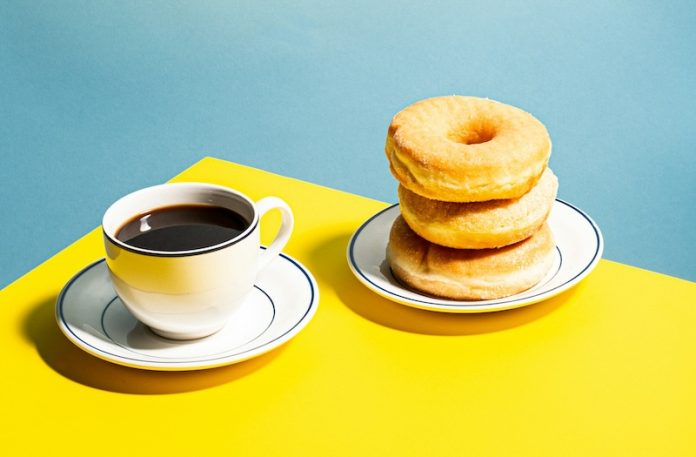
Tea and coffee are among the most popular beverages in the world, enjoyed daily by millions for their stimulating effects and the comfort they bring.
While both drinks are famous for helping people feel more awake and alert, they also offer a variety of health benefits, from boosting mental performance to providing the body with antioxidants.
Caffeine is the key ingredient in both tea and coffee that provides these stimulating effects. It works by activating the central nervous system, which can enhance brain function, improve memory, and increase attention.
For many students and professionals, a cup of coffee or tea is a go-to remedy for staying focused and alert. Regular caffeine consumption has been shown to help people react faster and think more clearly.
But the benefits of tea and coffee don’t stop at mental performance. These beverages are also rich in antioxidants, which are natural compounds that protect the body’s cells from damage.
Antioxidants help reduce the risk of several serious diseases, including cancer, heart disease, and Alzheimer’s disease.
However, the way people drink tea and coffee may also influence their risk of developing high blood pressure, a condition that can lead to heart problems, strokes, and other health issues if left unmanaged.
A recent study led by Choy-Lye Chei and his team at Duke-NUS Medical School in Singapore explored this connection. The research was published in The European Journal of Nutrition and focused on how caffeine, the main active ingredient in both beverages, affects blood pressure.
Caffeine is found in many drinks besides coffee and tea, including cola and cocoa. It stimulates the central nervous system, increases heart activity, and influences the muscles and blood pressure regulation centers.
In small amounts, caffeine can help people feel more awake and alert. But when it comes to blood pressure, the relationship with caffeine is less straightforward.
To better understand this relationship, the researchers analyzed data from a large group of Chinese adults aged 45 to 74, who lived in Singapore between 1993 and 1998.
These participants shared information about their coffee and tea consumption, as well as other aspects of their lifestyle. The researchers then followed up with them several years later to see how their blood pressure had changed.
After an average follow-up period of 9.5 years, the study found that 13,658 participants had developed high blood pressure.
Interestingly, the results showed that people who drank either less than one cup of coffee per week or three or more cups per day had a lower risk of developing high blood pressure compared to those who drank exactly one cup per day.
Moreover, the study revealed a dose-response relationship between caffeine intake and high blood pressure risk.
This means that people who consumed less than 50 mg of caffeine per day (about half a cup of coffee) had the lowest risk, while those who consumed 300 mg or more per day (roughly three cups of coffee) had a 16% higher risk of developing high blood pressure.
Tea drinkers were also included in the study, and the results showed that people who drank black or green tea daily had a slightly higher risk of developing high blood pressure compared to those who drank tea less than once per week. The researchers speculated that this could be due to the caffeine content in tea.
One of the most intriguing findings was the inverse U-shaped relationship between coffee consumption and blood pressure risk. This means that moderate coffee drinkers had a lower risk of high blood pressure than those who drank very little or very much coffee.
The researchers suggested that this might be because other components in coffee, such as antioxidants, could help counteract the negative effects of caffeine on blood pressure.
It’s important to note that this study has some limitations. It only included Chinese adults living in Singapore and relied on self-reported data for coffee and tea consumption, which might not always be accurate.
However, the findings still provide valuable insights into how different amounts of caffeine might influence blood pressure.
In summary, the study suggests that drinking either very little coffee (less than one cup per week) or a lot (three or more cups per day) may help reduce the risk of developing high blood pressure.
On the other hand, those who drink one cup of coffee per day or who are daily tea drinkers might face a slightly higher risk.
As with many things, moderation is key. While tea and coffee have many health benefits, consuming them in excessive amounts can lead to negative effects like jitteriness, anxiety, and disrupted sleep.
It’s generally recommended that adults keep their caffeine intake below 400 mg per day, which is about four cups of coffee, to avoid these side effects while still enjoying the benefits these popular beverages have to offer.
If you care about high blood pressure, please read studies that early time-restricted eating could help improve blood pressure, and natural coconut sugar could help reduce blood pressure and artery stiffness.
For more information about blood pressure, please see recent studies about added sugar in your diet linked to higher blood pressure, and results showing vitamin D could improve blood pressure in people with diabetes.
Copyright © 2024 Knowridge Science Report. All rights reserved.



